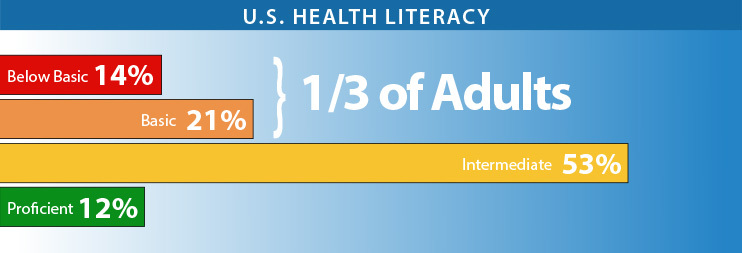INSIGHTS AND UPDATES
Is health literacy sinking your hospital marketing?
Before you launch that new campaign, you might want to make sure it passes the dinner table conversation test.

Do people understand your healthcare marketing materials like you want? According to one study, only 53% of U.S. adults have an intermediate understanding of health information, so chances are that your marketing and educational materials come across like Charlie Brown’s teacher. Wah wah, wah wah, wah …

Let’s face it. Does anyone sit around the dinner table and talk about 640-slice CT scanners or fellowship-trained physicians?
No, but they do talk about physicians who have extra training and experience. They do talk about the cool 3D images of their heart that was taken during one heartbeat.
Fortunately, healthcare marketing is trending to be more patient focused and benefit-oriented. The days of showing doctors in lab coats and clinical settings and promoting cutting-edge technology for what it does seem to be receding into the past.
Considering the following statistics regarding America’s health literacy, we should all reevaluate how we present medical information to the public.
In the U.S., our education level and health literacy go hand-in-hand. Of people with less than a high school degree, only one percent rate proficient or at the top in health literacy. Interestingly, only 30 percent of people with bachelor’s degrees or higher rate proficient.
Health literacy also declines with age. Five percent of people 65-75 and only one percent of those over 75 rated proficient.
Since most people read on an 8th-9th grade level and most marketing materials are written at a 10th grade level, it is no surprise that people of all levels of proficiency preferred non-print sources such as broadcast or radio.
Before you launch your next marketing or educational material project, see if it passes the dinner table conversation test. People are interested in your fellowship-trained physicians and advanced medical equipment, but they want to learn about it in everyday language. And it is important to tell them how it helps them and not necessarily what it does.
For more plain talk give us a call.